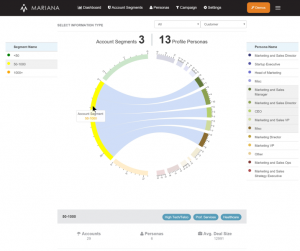On September 18h, 2015, a Google Webmaster Blog post came up to shake webmasters and SEOs and give everybody with a website some food for thought — Google is no longer granting an easy and painless reconsideration to those websites that violate Webmaster Guidelines again and again after they have been successfully reconsidered.
To quote the blog post: “Such repeated violations may make a successful reconsideration process more difficult to achieve. Especially when the repeated violation is done with a clear intention to spam, further action may be taken on the site.”
To be honest, I always suspected that, but the fact that Google’s team is making this position public might mean the case has not been rare after all.
What Marketing Experts Think About It
I asked the three Marketing experts I interviewed for the post on HTTPS and blogs what their reaction to this news was.
Here are the responses:
Cormac Reynolds, company director at MyOnlineMarketer.co.uk:
Cormac Reynolds
I think it’s fair enough. You can’t just keep spamming and respamming. Yes, we can all push the boundaries and get hit with a manual penalty, but to do the same thing repeatedly doesn’t stack up well. Additionally, it takes up the manual reviewing time that could be spent on other legit businesses reviews trying to make the effort to go down a straight line.
David Leonhardt, president at THGM Writers:
David Leonhardt
Wow! this is shocking news. This implies that for the past decade or more, Google has been repeatedly penalizing sites and letting them offend again with impunity (well, with no more penalty than for their first offence, which is a lot like impunity wearing a mask of contrition). I had always assumed that Google has a list of “bad boys” that they keep in a special dungeon and periodically send out a special squad of paintball hitmen.
Lukasz Zelezny, head of organic acquisition at Zelezny.uk:
Lukasz Zelezny
Google has never professed to allow black hat SEO, so I’m quite surprised that so many people were shocked by this announcement. Yes, every webmaster will make mistakes from time to time – just look at the whole guest posting fiasco of 2013 – however when a site repeatedly gets penalised over and over again, I think it’s clear that the site owner either really has no clue what he’s doing, or that he’s spamming the search results. In the former case, you’d assume that after one Google penalty, you’d start getting clued up, so I believe those that see numerous penalties are aware of what they are doing and haven’t been too worried about it as the short term traffic has made it worth their while.
Webmasters who try to adhere to Google’s guidelines should have nothing to worry about. But if you do have cause for concern, it’s worth subscribing to the Google blog and staying up to date with what the search giant says. You may also want to hire someone in the SEO industry to perform an audit of your site to ensure you aren’t breaking any rules. If you’re not breaking the Google guidelines on purpose, though, you shouldn’t have anything to worry about. The new penalty should be good news for those of us who stick to the rules.
A Final Thought (And A Takeaway)
It may be easy to fall in the trap to game Google again and again, but while a website might escape an algorithmic penalty, it’s unlikely it would escape a manual one — and manual actions are anything but rare.
Unless you don’t care about Google’s opinion of your website anymore and you prefer other traffic sources and marketing methods, to get caught violating Guidelines a second or third or further time can backfire — long term.
When you find out that Google’s Guidelines are not for you, making an effort to change your traffic and lead generation plan is a more effective and less stressing option than to continue playing hide-and-seek with Google.
What’s your reaction to this news? How do you deal with Google penalties (if you do)?
Digital & Social Articles on Business 2 Community(52)
Report Post











